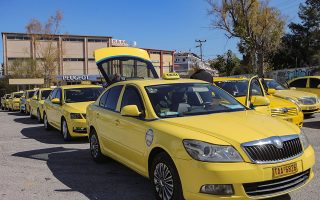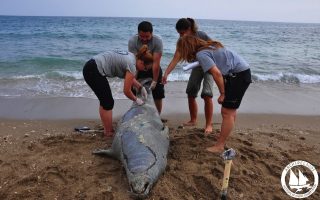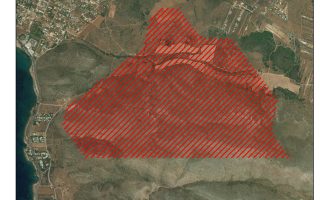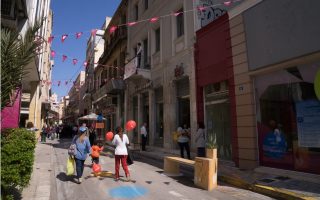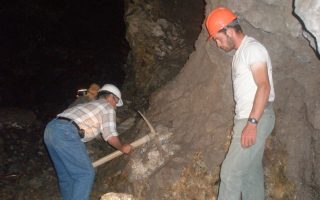Menidi residents facing drugs on their doorstep
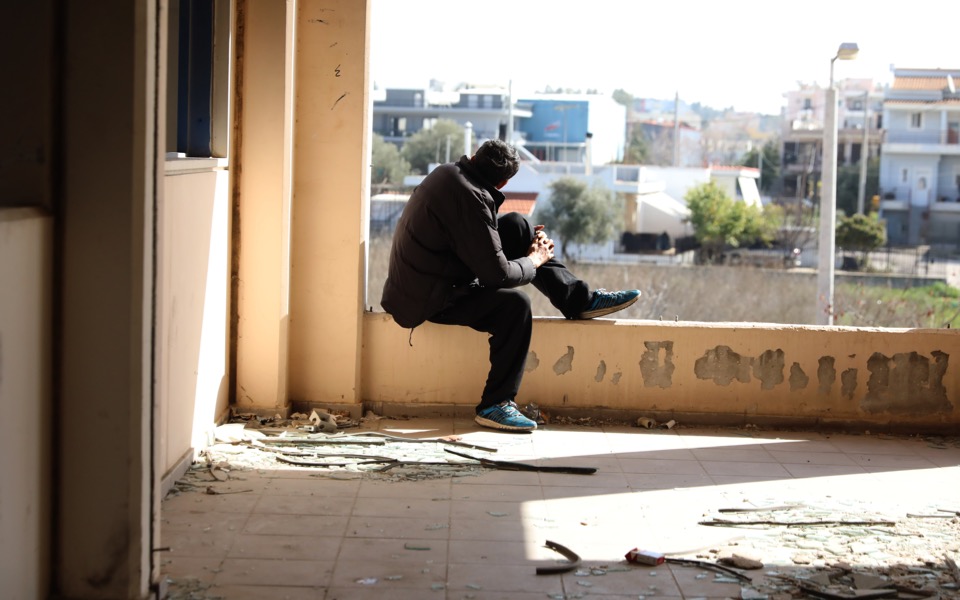
Their son is away from home for the seventh time. He is in a rehabilitation center to treat his 20-year addiction to heroin and other illegal drugs. His previous attempts to quit, both in Greece and abroad, ended in relapses just a few months after he returned to his childhood home in Menidi. His parents are worried that there is no way out of this vicious cycle.
“Maybe my son would have quit if we lived somewhere else,” says Maria as we interview her at the family home. We’re sitting in the living room; the outside door is wide open, letting a cool breeze into the room. Drug dealers have been plying their trade just a few blocks away for years. Policemen who had been surveilling the area from February to April observed that drug dealing began from 11 a.m. and went on until sundown. More than 20 people were seen coming to pick up their fix every hour. This led officers to nickname the area “the drug supermarket.” Other sources reveal that this label has stigmatized Menidi and other neighborhoods in western Athens for at least a decade.
“When you bring him home and the dealer is waiting on your doorstep, it’s very hard. If we had taken him to the countryside it might have been easier, but our home, our jobs are here,” says Maria. As she requested, we have changed her real name and certain details about her son for reasons of anonymity.
The tragic death of an 11-year-old after he was shot by a stray bullet at a school celebration in June brought the issue of criminality and drug dealing in the neighborhood to the fore. But Maria’s family have been facing the problems of drug dealing and abuse inside their own home for more than two decades. Through their story, reports from the counter narcotics police, and interviews with organizations that treat and offer support to addicts, Kathimerini is able to outline the harsh reality of trying to escape addiction and the everyday difficulties of living in a drug-dealing neighborhood.
Maria remembers that her son was 18 when she found him unconscious in his room with a piece of foil in his hands. “That was the first shock. I thought he was dead or had fallen into a coma,” she says. “He’s been in and out of rehab ever since. Four months after returning home, he would start again,” she says. He became isolated from his family and friends, he wouldn’t answer his phone and all the signs of addiction gradually reappeared. Rehabilitation experts who talked to the newspaper however said that users’ personal efforts and how much they have worked on bettering themselves are more likely to play a role in whether or not they relapse than simple availability.
A recent police operation in the Roma settlement of Avliza in Menidi revealed that some users have been buying drugs, especially heroin, from dealers in the area. For example, one user mentioned that he has been traveling from Kamatero, in northwest Athens, to Menidi for 15 years, to buy from a dealer who saw more than 150 clients a day. Another user from Gyzi in downtown Athens had been buying drugs in Menidi for the past six years. The addicts used the drugs at the dealer’s house or in abandoned areas.
Intervention attempts
Michalis Mylonas, who heads Exelixis, a direct access program at the KETHEA Therapy Center for Dependent Individuals, told Kathimerini that a research operation began to record the situation in the neighborhood and ascertain its needs in 2004. Later, KETHEA cemented its presence in neighboring Ilissos by opening a counseling center. Sometimes an Exelixis van can be found stationed on Menidi’s main street. Its personnel provide information about drug addiction and direct users to health and rehabilitation services. They also explain to residents who react to their presence that their help is necessary and that they should work together as allies. After a short hiatus, Exelexis renewed its interventions in 2017. In collaboration with the Athens Urban Transport Organization (OASA), they board city buses to Menidi to reassure bus drivers and passengers and to handle occasional incidents with users.
‘We want to save our child’
Before the start of the program, on a bus trip, Mylonas witnessed a user collapsing from an overdose. He remembers the different reactions of passengers – from “screaming to indifference.” That led to the decision to place experts on buses who could help in similar episodes thanks to their knowledge and training. However, after the death of the 11-year-old in June and an explosive situation with demonstrations and violent incidents in the area, they decided that they had to withdraw.
The incident with the 11-year-old also led to the pullout of Nostos, another KETHEA program, from Menidi, after a 50-year presence in the area. Vasiliki Charambopoulou, a social worker and drug addiction counselor, explains that a team of four used to inform users on the suburban railway about support and therapy options. The Nostos center for family support had also been providing assistance to Maria and her ex-husband since October 2014. “Parents learn how to persuade their child to start therapy and support each other in self-help groups,” says Charambopoulou, who specializes in family therapy and says most live in constant fear of their child’s death. “What kept us alive all these years? Hope,” says Maria’s ex-husband. “A lot of children were saved. We want to save our child too.”
